Bridging the Communication Gap for Deaf People
Participants from across Central and South America, as well as the Caribbean, have converged upon Belize for the Inter-American Sign Language Linguistics Conference. It is the first time Belize is hosting such an event organized by the Inter-American Confederation for Deaf Professionals and Civil Society. The confederation has brought deaf professionals and members of civil society together to formulate ideas on how to better the lives of deaf people and increase their accessibility in society. This four-day conference began one day after the International Day of Sign Languages and only a few days ahead of World Deaf Day. News Five’s Paul Lopez reports.
Paul Lopez, Reporting
The exact figures are not known, but a study done in 2013 indicated that the deaf population in Belize stood at roughly thirteen to fifteen thousand. These are people who struggle daily to communicate well, many times even at home. As a result, they often miss out on education and employment opportunities, as well as basic social interactions.
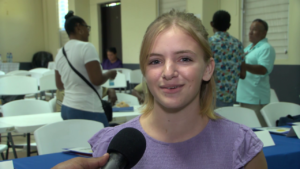
Sallah Davis
Sallah Davis, Sign Language Interpreter
“Well I grew up in a deaf community. It is a very common thing where you grow up and everybody around me signs, so of course you would grow up learning how to sign. It is just as easy for me as signing English, sometimes even better than speaking English.”
Sallah Davis grew up with a father who pastors a church for the deaf. She is now studying to become an international sign language interpreter. Today, Sallah and her father were our interpreters at the First Congress for Inter-American Sign Language Linguistics Conference in Belize.
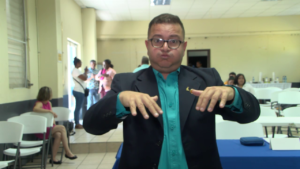
Anabil Rene Coltat
Anabil Rene Coltat, Venezuelan Parliamentarian
“I came from Belize from Venezuela to facilitate communication and relationship with the Belizeans. I work in the law in the government for the deaf in Venezuela. I teach a lot of the kids so that when they grow up that they will be able to be functioning parts of society to create relationships between them and other people so that throughout time they will be able to work throughout all of the Americas, so that we will be able to all come together and work, especially in the media.”
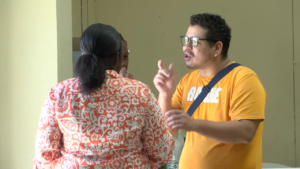 That’s Anabil Rene Coltat, the only deaf parliamentarian in Venezuela who also heads a foundation for persons living with disabilities. Coltat advocates for policies that enrich the lives of individuals living with various disabilities. He is one of the main speakers at the conference. For Sallah, translating Coltat’s interview was not simple, because sign languages change in different parts of the world.
That’s Anabil Rene Coltat, the only deaf parliamentarian in Venezuela who also heads a foundation for persons living with disabilities. Coltat advocates for policies that enrich the lives of individuals living with various disabilities. He is one of the main speakers at the conference. For Sallah, translating Coltat’s interview was not simple, because sign languages change in different parts of the world.
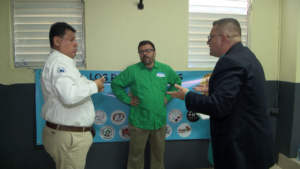 Sallah Davis
Sallah Davis
“Yeah that is the hard thing. Most people think that sign language is the same all across the country. I could see how you would think that, but in reality, every single country, most of them have their own different language. Here in Belize, we use a form of ASL so it is very common, same with United States. But, in different Spanish speaking countries, Mexico has a different one, Venezuela has a different one, Guatemala, so it is important to facilitate communication between those languages just as much.”
Juan Palomino, the President of Inter-American Confederation for Deaf Professionals and Civil Society, is also in attendance at the four-day conference. Palamino has a degree in education for the deaf. For this interview, Sallah’s father was our translator.
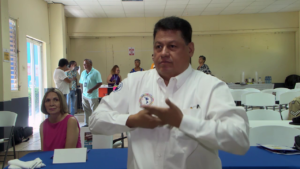
Juan Guillermo Palomino
Juan Guillermo Palomino, President, CAIPSOR
“I have come here to Belize and I was welcomed here to work with different individuals in Belize and I am really interested in meeting new Belizeans and see how I can support and help them and that we can work together to continue to develop things for all of the Americas and our hope is that at this event we will have different individuals from different countries from all over the Americas come together here in Belize to learn more about each other and how to support each other.”
The conference will see participation and presentations from numerous Central American, South American and Caribbean countries. Belizean, Svetlana Romero organized the entire event. She is also deaf and a member of the organization that Palimino heads in Mexico. Sallah and her dad partnered to translate Romero’s interview.
Paul Lopez
“Why did you plan this event?”
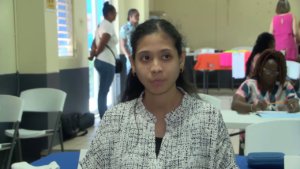
Sveltana Romero
Sveltana Romero, Member, CAIPSOR
“We hope that the information provided we as a country will learn and use to motivate the deaf community?”
Sallah and her father are bridging a gap that makes the world of difference for deaf people. Their roles as interpreters erase the challenges that come with communicating as a deaf person trying to navigate everyday life.
Sallah Davis
“I think the best way would just be like, first of all, to go online. There are so many accessible resources to just learn a few signs and just talk to a deaf person, because a lot of times they are very lonely. Even sometimes their family doesn’t speak sign language. So, learning sign language will make a huge difference and if you find that you like it like me then maybe you can get a career in it and it can pay a lot of money, so.”
Reporting for News Five, I am Paul Lopez.





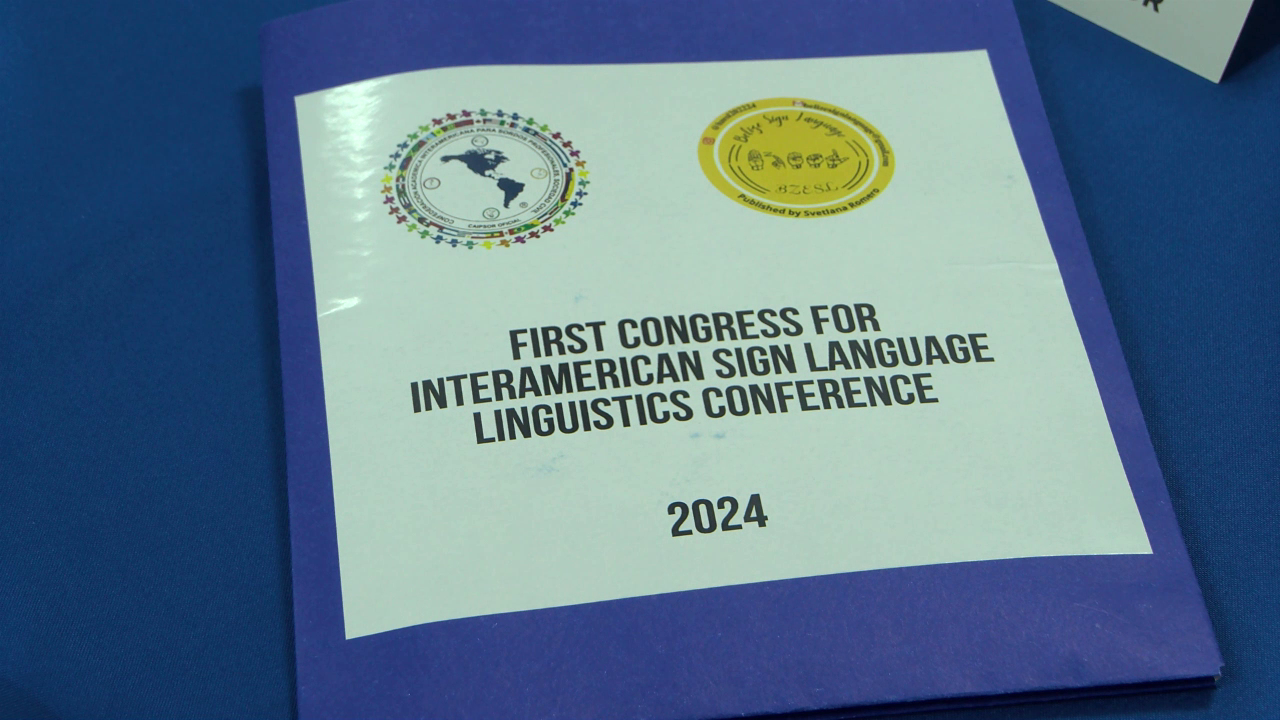
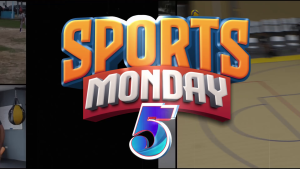
Facebook Comments